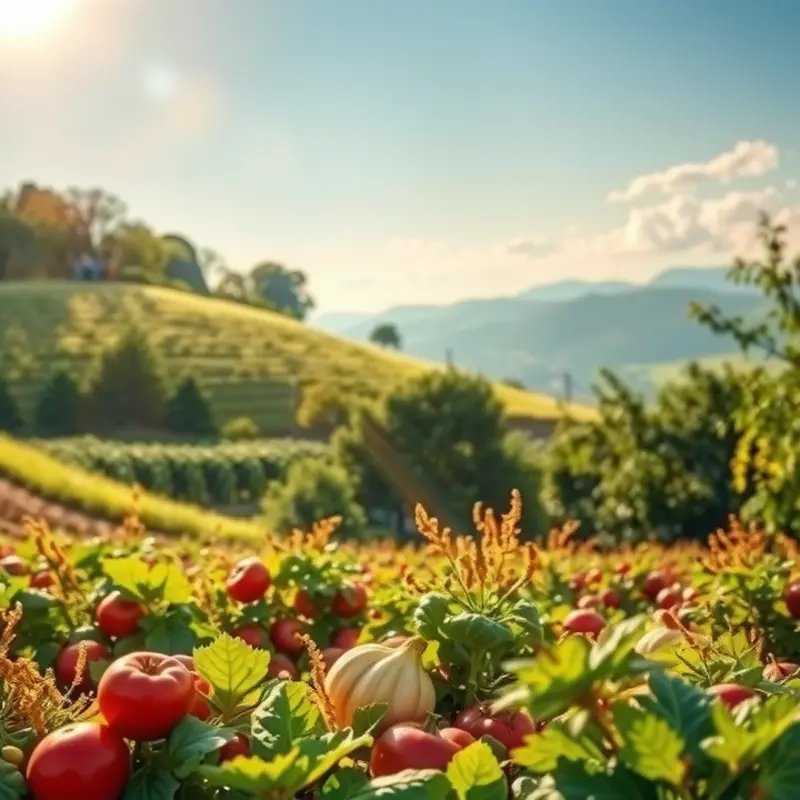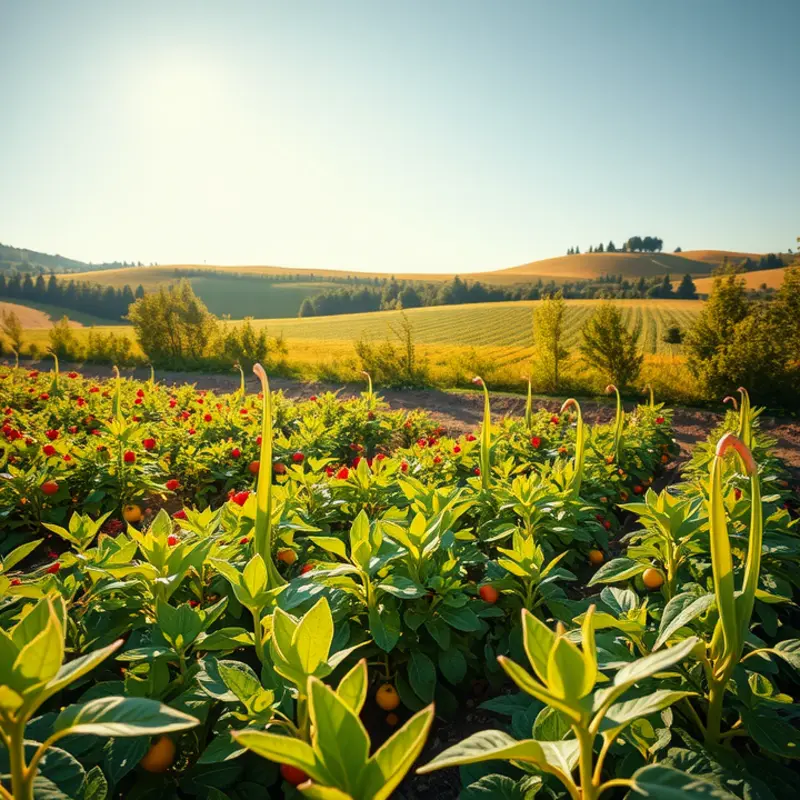Baking holds a special place in many hearts, blending creativity and comfort. When approached with sustainability in mind, this beloved activity evolves into a powerful tool for environmental stewardship. By choosing eco-conscious baking practices, individuals not only indulge in delightful homemade goods but also contribute to a healthier planet. It’s an exciting opportunity to make informed decisions that honor our resources while indulging in the joy of baking.
Eco-Friendly Ingredients: Your Best Allies

Delight in the world of eco-friendly baking by choosing ingredients that respect both our planet and our palate. The foundation of sustainable baking lies in selecting organic, local, and sustainably sourced ingredients. These choices not only minimize environmental impact but also promise flavors that are rich and authentic.
Start by prioritizing organic flours. Organic farming avoids synthetic fertilizers and pesticides, which reduces soil and water contamination. Look for varieties like spelt, buckwheat, or whole wheat, which often require fewer resources to grow. For those aiming to minimize their carbon footprint, local grain options can drastically reduce transportation emissions, ensuring your baked goodies support regional agriculture.
Sweeteners are another critical component in eco-friendly baking. Refined sugars can have a taxing environmental impact due to the energy-intensive processes involved. Instead, opt for natural alternatives like honey or maple syrup from sustainable farms. These not only impart a unique, rich flavor but also often contain fewer processed ingredients and preservatives. Coconut sugar is another choice gaining popularity; it has a lower glycemic index and is often produced with minimal processing. When choosing any sweetener, verify it’s sourced responsibly to ensure it aligns with your eco-values.
Fats play an imperative role in baking, contributing to both texture and taste. Consider transitioning from conventional butter to plant-based oils, like coconut or olive oil, which are often produced through more sustainable practices. Fair-trade certification can be a helpful indicator when sourcing fats, ensuring workers’ rights and environmental sustainability are addressed. For those who prefer dairy butter, look for local or organic options to reduce the associated carbon footprint.
Substituting ingredients in traditional recipes can also contribute to eco-friendly baking. Utilizing ingredients that are less resource-intensive can significantly lower ecological impact. For instance, replace almond milk with oat milk, as almonds demand significant water for cultivation. Incorporate fruit purees like applesauce or mashed bananas to reduce the need for added sugar and fat; these swaps not only decrease waste but tend to be healthier options.
Incorporating these ingredients aligns with a broader movement towards more eco-conscious lifestyles. To further explore sustainable kitchen practices, delve into eco-smart storage solutions which complement the eco-friendly ingredient selection by minimizing waste.
By harnessing the power of these sustainable ingredients, you’re contributing to a healthier planet and crafting baked goods that are as nourishing as they are delectable. Exploring eco-friendly options can become a joyful part of your baking process, transforming the way you engage with each delicious creation and the environment.
Sustainable Baking Practices: Methods to Make a Difference

Sustainable baking doesn’t require compromising on taste or quality. By adopting a few thoughtful practices, bakers can make a significant impact on the environment. One effective method is to integrate energy-efficient baking techniques into your kitchen routine. Convection ovens, for example, circulate heat more evenly, enabling faster and more consistent baking. This not only saves energy but also enhances the quality of your baked goods. Furthermore, baking in batches rather than individually can reduce the amount of time the oven needs to be on, cutting down on electricity use.
Reducing waste is another cornerstone of sustainable baking. Start by being mindful of ingredient quantities to minimize leftover waste. For more guidance on efficient ingredient management, refer to this practical ingredient batching resource. Composting organic waste such as eggshells and fruit peels instead of discarding them further reduces your environmental footprint. Additionally, critically examine packaging: opting for bulk purchase options reduces single-use plastic.
An eco-friendly kitchen thrives on the use of reusable and sustainable materials. Replace disposable items such as parchment paper with silicone baking mats. They offer multiple uses and easy cleanup, reducing ongoing costs and landfill contributions. Reusable cloth or beeswax wraps can replace plastic wrap, bringing sustainability beyond baking to storage solutions.
Selecting suitable baking equipment is pivotal in lessening environmental impact. Cast iron or stainless steel, for instance, are long-lasting alternatives to nonstick cookware, which may not be as durable over time. When it comes to mixing bowls or spoons, prioritize materials like wood or stainless steel rather than plastic. These choices not only contribute to sustainability but also ensure that no harmful chemicals leach into your food.
Conscious sourcing of ingredients also plays a vital role in sustainable baking. Favoring locally produced and seasonal ingredients not only supports local communities but reduces the carbon emissions associated with long-distance transportation. Think of incorporating more plant-based alternatives, which typically require fewer resources to produce. These decisions help take vast steps toward sustainability while providing an opportunity to experiment with unique flavors and textures in your baking.
Incorporating these strategies can transform baking from a daily necessity into an environmentally beneficial practice. Each sustainable choice, however small, contributes to a larger collective impact. By implementing these methods, bakers contribute to greening the culinary arts while simultaneously elevating their creations with a new dimension of conscientiousness.
Final words
Engaging in climate-conscious baking is more than a cooking choice; it’s a commitment to protecting our planet. By embracing eco-friendly ingredients and sustainable practices, bakers can create delicious treats while nurturing the environment. The impact of such choices extends beyond the kitchen, inspiring community action and encouraging others to follow suit. Each loaf of bread, cake, or pastry can carry the message of sustainability, promoting healthier lifestyles and preserving nature’s bounty for future generations. This journey combines the joy of baking with the responsibility of caring for our Earth, making every baking session a step towards a brighter, more sustainable future.








